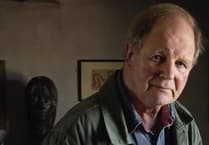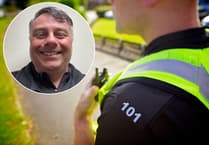Marie Curie is the UKs leading end of life charity. Across Cornwall, the charity provides vital end of life care services in the community, with a team of over thirty Marie Curie Nurses and Healthcare Assistants caring for and supporting terminally ill people in their homes across the county 365 days a year.
For the charity to continue providing compassionate and professional end of life care and support to families across Cornwall, it needs to recruit more team members, particularly experienced health care assistants.
Kathryn Bowman, clinical nurse manager of Marie Curie Cornwall, said: “We have several positions open for experienced healthcare assistants to join our friendly team. It’s a real privilege to care for someone who is at the end of life and it can be hugely rewarding too. So, if you are looking for a more rewarding role and caring role in 2023, we’d love to hear from you.”
Emma Mills is a healthcare assistant who has been working for Marie Curie in Cornwall for over three years, having previously worked in care homes.
“I knew I enjoyed supporting vulnerable people, but I wanted to try something different,” she said. “I work in the multi-visit service in West Cornwall. This means I do day shifts, where we visit several different patients throughout the day.
“Sometimes we work in pairs, or sometimes on our own. Our shifts are 8am to 2pm and 4pm to 10pm, and you can decide whether you can do both shifts as long days or more shorter days – personally I prefer to do the longer days.
“An average visit is around 45 minutes. I often say we’re about 50% patient and 50% family – of course we support the patient, for example we provide personal care and symptom management, but we also do a lot to support the family, they usually have questions they want to ask us or they want to talk about their loved one or need some emotional support.
“When a patient is very near the end of life, the family might say ‘they’ve been doing this, is that ok, is that normal?’ and we can offer reassurance, without that, they’d be worrying or on and off the phone trying to speak to doctors.”
Best parts of the job?
“It’s nice going into lots of homes and meeting all sorts of people and families and hearing lots of different stories.
“People are so grateful to see us – they pretty much always welcome us with open arms. We tend to care for people who have 12 weeks or less left to live, who are very near the end of life.
“We often find families have been caring for their loved one alone until we come in and are exhausted and grateful for the help so they can go back to being husband and wife or parent and child rather than carer.
“We look after a lot of the care so that they can make the most of the time they have left with their family. It’s really important for a lot of our patients to die at home and not in hospital or a hospice.
“Knowing that our visits and care mean that they are able to do this is a nice feeling.
“We’re a friendly team – we get to know each other well because of the way our shifts are designed, sometimes working together and also because we often end up spending the two-hour lunch breaks together.”
Is the job emotionally challenging?
“It’s never easy and some patients affect you especially if you can relate to them in some way.
“From doing my previous job I’m used to end of life care but of course it’s hard – dealing with families’ emotions, people who are crying and very upset can be hard.
“A lot of people or their families ask how long they’ve got left – that’s always a difficult question to answer as every patient is different but we always try to reassure them that we’re here to support them and their family throughout the process.
“We help answer questions about end of life and what to expect but make sure they understand that we’ll do our best to ensure the patient is able to die at home comfortably with dignity.
“Overall, people are very grateful. I think that’s what I find that the most difficult part of the job.
“The amount of people who say ‘thank you for everything you’ve done, you’ve been brilliant, I don’t know what we’d have done without you’. I never know what to say, because I’m just doing my job, I’ve been doing it for years, it’s just part of my day-to-day life.”
For more information on current Marie Curie vacancies, please search ‘Cornwall’ on jobs page of the Marie Curie website:mariecurie.org.uk





Comments
This article has no comments yet. Be the first to leave a comment.